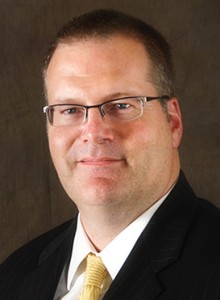
Sen. Steve Urquhart R-St. George introduced SB107 during Utah’s 2016 legislative session that would amend Utah’s hate crime law to include a specific set of categories including gender identity and sexual orientation. SB107 would also allow prosecutors to bump legal punishment up a step if the crime is motivated by prejudice.
Troy Williams, executive director of Equality Utah, said breaking down the law into categories is what the current law, which has managed to prosecute next to no hate crimes, needs to become enforceable. He pointed out that 44 states already have laws like this, so said he believes it’s time for Utah to join the club.
“Actually, this entire state was founded by people who were fleeing hate crimes,” Williams said.
Hate crimes are not only an interest of the LGBTQ community; in fact, hate crimes based on sexuality come in third behind race and religion on the list of most common motivations.
“What I love about working with Sen. Urquhart is that the LGBTQ community can actually work to try to improve the lives of other people and not just work on our own issues,” Williams said.
Urquhart views application of the bill broadly, too. In response to opposing arguments that specifying groups commonly targeted for hate crimes in the law would give some people special rights, he simply replies that it doesn’t.
“Everyone fits into these categories,” Urquhart said. “People wrongly assume, OK, that would only apply to minorities — no. If someone is targeted because he or she is white, that’s a hate crime.”
Zachary Ibarra, 20, is a sophomore at BYU who recently came out as homosexual. Ibarra, who grew up in Perrysburg, Ohio, loves the idea that the bill would address what he sees as a lack of cultural sensitivity for many Utahns who are accustomed to uniform thinking in their communities.
Ibarra thinks many hate crimes, especially those committed by teenagers, are taken lightly.
“They don’t understand the magnitude of what they’re doing,” Ibarra said. “And so I think a law that helps add depth and pressure to people to say, ‘Hey, that’s really not OK,’ is awesome. I think it’s exactly what the leaders of the (LDS) Church talk about when they talk about these issues.”
Some lawmakers have voiced their opinions that adding so many distinctions to the law is unnecessary, and that a crime is a crime. Rep. Timothy Hawkes, R-Centerville and adjunct BYU professor, said he can sympathize with those perspectives.
On top of that, Hawkes has concerns about how the bill could muddy the political process. A lawyer who worked on a hate crimes case that went to the Supreme Court, Hawkes said it’s important who gets to decide whether hate was a factor in a crime.
The Supreme Court ruled juries should decide, according to the Sixth Amendment.
“I don’t like, over time, when we take a lot of the discretion away from these judges and try to micromanage every social conflict,” Hawkes said.
The bill will be brought before the Senate Judiciary, Law Enforcement, and Criminal Justice Committee on Thursday. Urquhart expects the bill to pass committee.
The 2015 Provo Clery Act Report only records two hate crimes on campus — one for race and one for sexual orientation. That said, BYU only reports crimes that occur at on-campus housing, not at off-campus BYU-approved housing.




